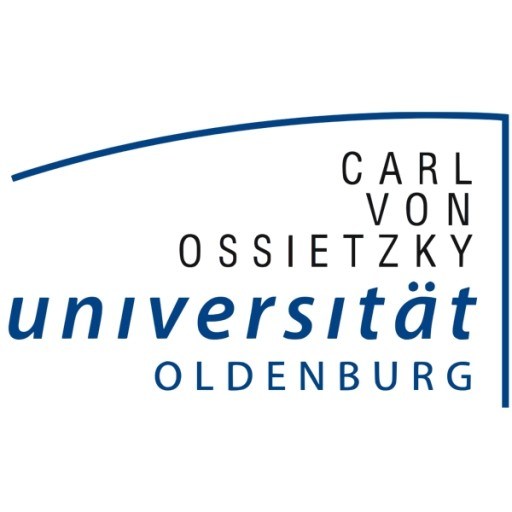Political Psychology is a growing inter-disciplinary sub-field drawing on insights from a number of disciplines including Psychology, Political Science and History.
It is concerned with understanding political issues and phenomena by exploring how socio-political contexts and institutions are affected and how they affect individual and collective cognitions and behaviours.
This programme adopts a predominantly critical social psychological approach and places a strong emphasis on understanding how political psychological concepts may operate in practice.
Its aims are to:
> Provide a critical understanding of the historical development of political psychology from different epistemological, ideological and disciplinary. perspectives and provide an advanced understanding of current theoretical debates within political psychology.
> Enable students to engage in multidisciplinary dialogue and research.
> Train students to use political psychological theories to formulate research questions relevant to current political phenomena and provide skills to apply political psychological theories and empirical findings in a number of different employment settings.
> Provide skills to use appropriate quantitative and qualitative methods to address research questions as well as with the skills to interpret quantitative and qualitative data.
WHY QUEEN'S?
We are the only institute in the UK to offer a MSc Political Psychology degree.
We have a longstanding international reputation for our social psychological research on political issues. Being based in Belfast has helped us to study at first hand conflict and now the peach process which is fostering cohesion between communities. This context provides students with opportunities to apply their learning to real life political phenomena.
The programme consists of eight compulsory modules and a dissertation.
Typical modules are:
- Applying Political Psychology to Current Social Issues
- Principles of Qualitative Research - Methods and Data Analyses I
- Principles of Qualitative Research - Methods and Data Analyses II
- Quantitative Data Analyses I
- Quantitative Data Analyses II
- Research Design and Professional Skills
- Theoretical Perspectives and Focal Issues in Political Psychology
- Understanding Political Behaviours: Civic Engagement, Political Participation and Disempowerment
ENTRY REQUIREMENTS
Applicants must normally possess or expect to possess by admission to the course, a 2.1 Honours degree or above in Psychology or Political Sciences or in another relevant discipline, or equivalent qualification acceptable to the University. We also take relevant work experience into account as part of the selection process.
If the programme is oversubscribed, applications will be ranked based on quality of academic performance, references and relevant experience. Applicants may be required to undertake an interview.
ADDITIONAL INFORMATION FOR INTERNATIONAL STUDENTS
International students (for whom English is not their first language), must be able to demonstrate their proficiency in English in order to benefit fully from their studies. Non-EEA nationals must also satisfy UK Visas and Immigration (UKVI) immigration requirements for English language for visa purposes. Evidence of an IELTS* score of 6.5, with not less than 5.5 in any component, or an equivalent qualification acceptable to the University is required (*taken within the last 2 years). For more information on English Language requirements for EEA and non-EEA nationals see:go.qub.ac.uk/EnglishLanguageReqs
If you need to improve your English language skills before you enter this programme, our partner INTO Queen's University Belfast offers a range of English language courses. These intensive and flexible courses are designed to improve your English ability to entry to this programme. Please click the links below for more information: English for University Study - an intensive English language and study skills course for successful university study at degree level. Pre-sessional English - a short intensive academic English course for students starting a degree programme at Queen's University Belfast and who need to improve their English.
Applicants from the UK and other EU countries
Please note: Where it states 'UK residents' qualifying residency and citizenship/nationality criteria apply.
* Department of Employment and Learning (DEL) Postgraduate Research Studentships
Funded by the Department of Employment and Learning, these are offered in most subject areas.
UK residents: fees plus maintenance
Other EU residents: fees only
* DEL (CAST) Co-operative Awards in Science and Technology
These awards are for specific research projects in collaboration with an industrial sponsor in the following Schools/areas: Biomedical Sciences in School of Medicine, Dentistry and Biomedical Sciences; School of Biological Sciences; School of Pharmacy; School of Mechanical and Aerospace Engineering; School of Planning, Architecture and Civil Engineering; School of Electronics, Electrical Engineering and Computer Science; School of Chemistry and Chemical Engineering and the School of Mathematics and Physics.
UK residents: fees plus maintenance
Other EU residents: fees only
A CAST studentship may also include a contribution from the industrial collaborating body.
Visit the School websites listed above for details concerning potential DEL CAST
Arts and Humanities Research Council (AHRC)
Awards are available for both Masters and Doctoral degrees in humanities subject areas.
Applicants should apply via Queen's for funding and should not apply directly to AHRC.
UK residents: fees plus maintenance
Other EU residents: fees only
Queen's School Funding Opportunities
Some Schools have funding available for postgraduate PhD or taught Masters courses.
North-South Postgraduate Scholarships
Scholarships are available for students undertaking a recognised Masters or the first year of a PhD programme (taught or research) in the other Irish jurisdiction.
Applicants from outside the EU
If you are applying to Queen's from outside the EU, you are advised to explore fully the funding opportunities for studying in the UK available from sources in your own country. Some closing dates are as early as a year before commencing studies, so please make sure to apply in good time.
Some of the main awards are listed:
Department for International Development (DFID) Shared Scholarship Scheme
This award is for specific one-year taught postgraduate courses. The award cover tuition fees, a maintenance grant and travel costs. Only students from developing Commonwealth countries are eligible to apply.
British Chevening Awards
* The Foreign and Commonwealth Office funds a number of British Chevening scholaships for postgraduate study, mainly for one-year taught Masters degrees.
* Candidates must apply directly to the University for admission before applying for a Chevening Scholarship. Contact the British Embassy, British High Commission or British Council Office in your own country.
Applicants from USA
If you are a US citizen, you are eligible to apply for the following awards tenable at Queen's
George J Mitchell Scholarships
Fulbright Scholarships
Mary McNeill Scholarship (for US and Canadian citizens undertaking MA Irish Studies










